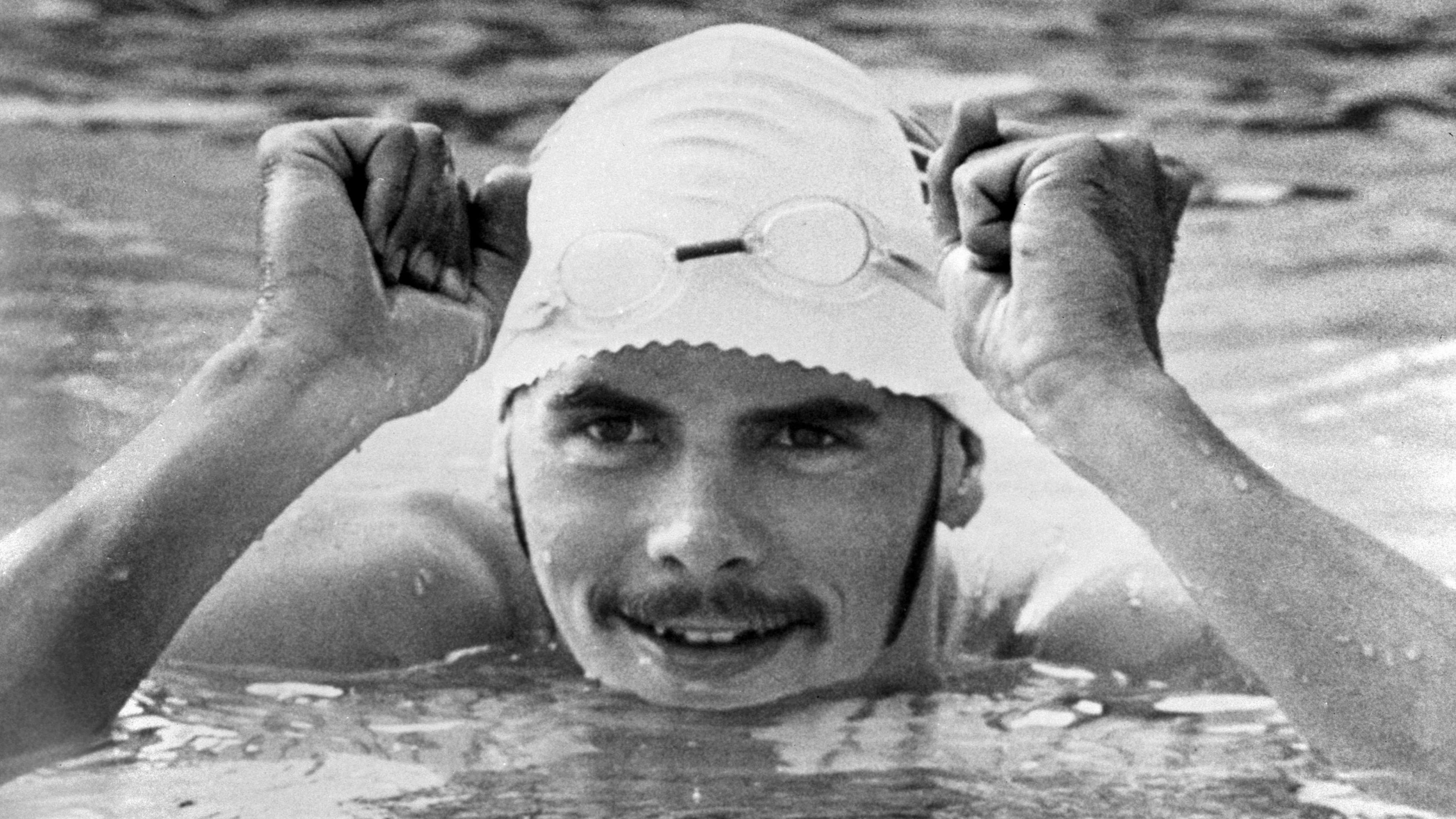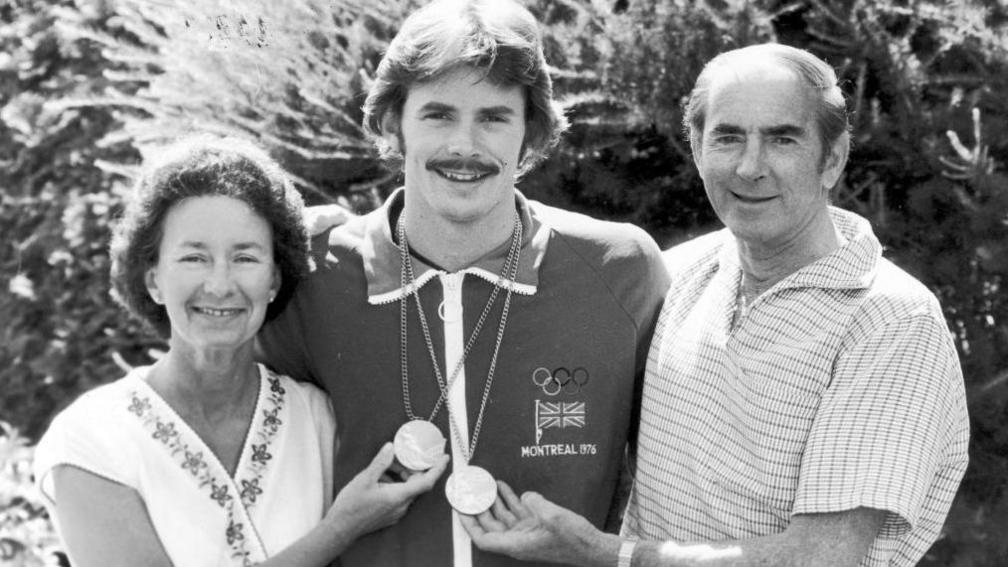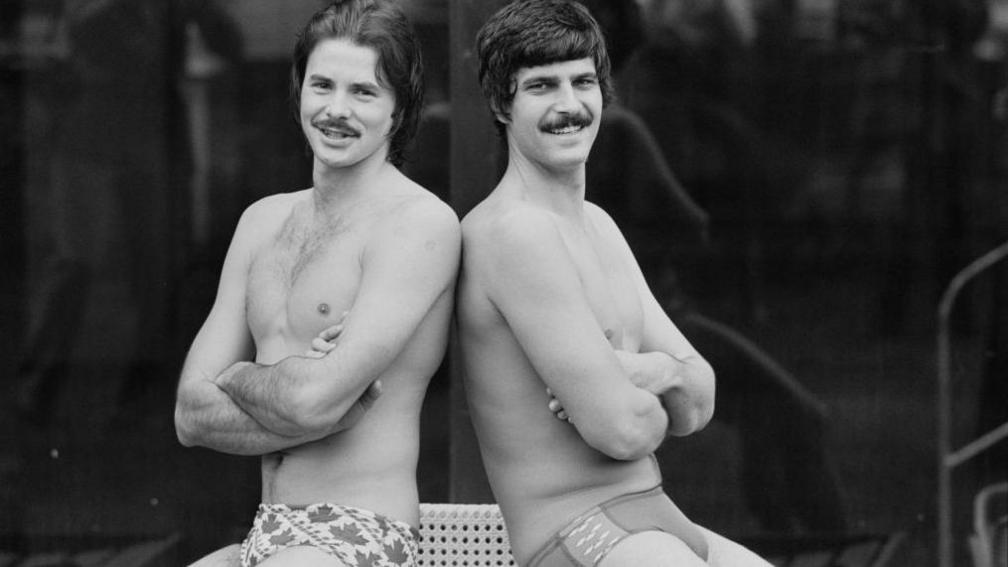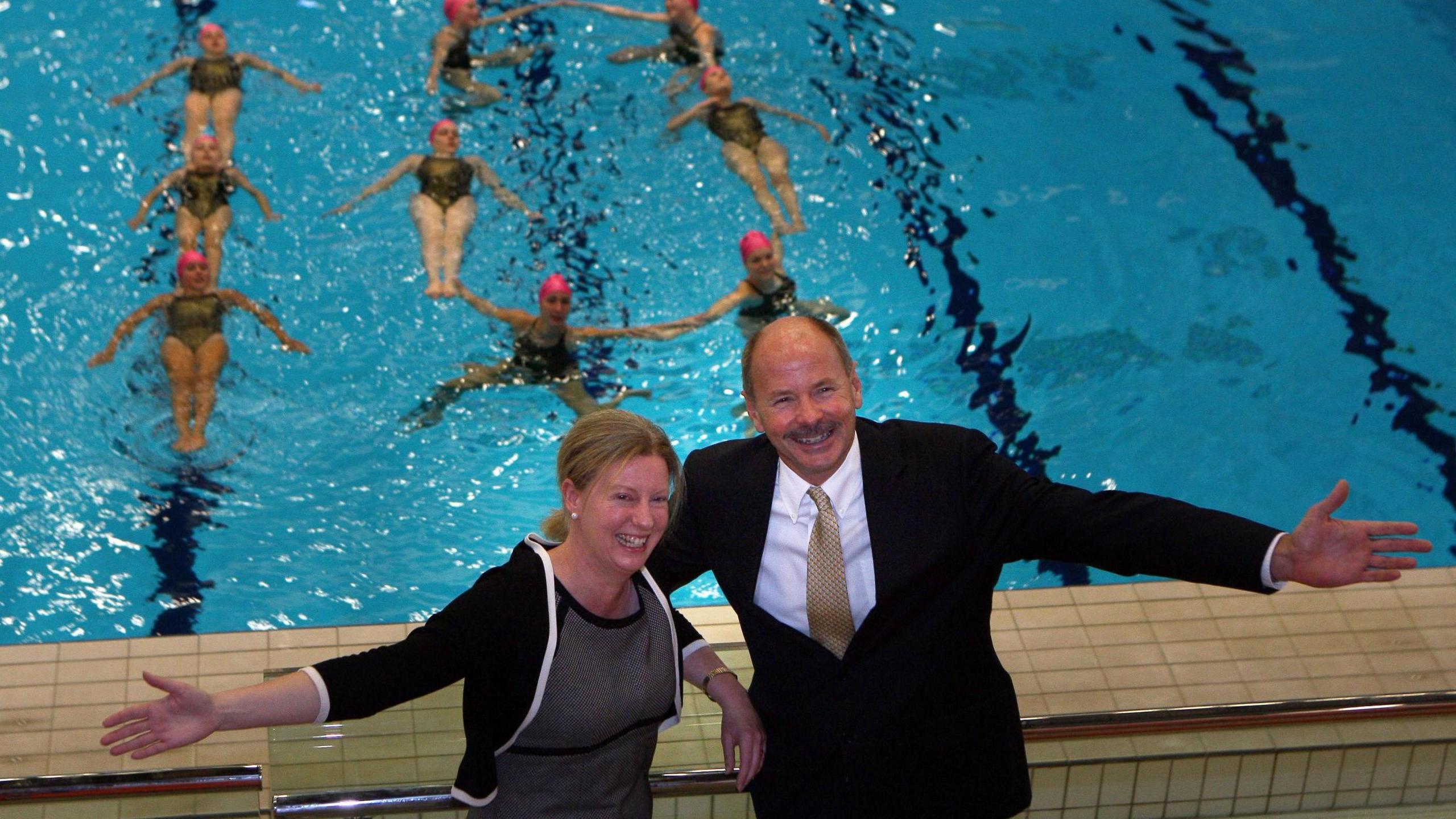Olympic champion swimmer Wilkie dies aged 70

David Wilkie won gold and silver medals at the 1976 Olympics
- Published
British Olympic swimming champion David Wilkie has died at the age of 70.
The Scot won 200m breaststroke gold in Montreal in 1976, as well as two Olympic silver medals and three world titles.
His family released a statement saying: "It is with great sadness that the family of David Wilkie MBE announce that he died peacefully surrounded by his family this morning, following his brave battle with cancer."
Born in Sri Lanka to Scottish parents, Wilkie won his first major medal with a bronze at the 1970 Commonwealth Games in Edinburgh.
Wilkie 'probably one of Britain’s greatest' - Goodhew
- Published23 May 2024
He collected Olympic silver in Munich in 1972 and won World Championship gold the following year.
Wilkie added three more Commonwealth medals for Scotland, including two golds, in 1974.
In 1975, he completed a 100m and 200m breaststroke double at world level and was voted British Sportsman of the Year by sports writers.
Wilkie's crowning moment came with an extraordinary performance in Montreal, with his Olympic triumph taking more than three seconds off the world record time.
He also came second in the 100m event in Canada.
Unbeaten over 200m for four years and the first British man to win Olympic gold in the pool in 68 years, he chose to retire one month after the Games at the age of 22.
Wilkie was made an MBE in 1977.
From Sri Lankan sun to Edinburgh chlorine

David Wilkie's parents sent him to boarding school in Edinburgh
In 2020, Wilkie spoke in depth to BBC Scotland's This Sporting Life podcast about his journey from his Colombo birthplace, through his arrival in Edinburgh aged 11, to his conquering of the swimming world at 22 and the fame that came with it.
He grew up in a big family home in the Sri Lankan sunshine, surrounded by nannies and maids, until his Scottish dad sent him to boarding school in Edinburgh.
At first, he hated it. The fun of swimming in Sri Lanka's warm waters was replaced with cold, crowded and regimented pools with nylon ropes and the smell of chlorine.
"The years went by and my attitude changed, but it took time," he said.
Indeed, by the time Wilkie left school, he had already won Commonwealth Games bronze, but it was also time to rebel and he grew his hair, developed sideburns and created a look that was unheard of in the staid world of swimming.
Olympic silver amid Munich bloodbath

David Wilkie struck silver as Mark Spitz dominated at the Munich Olympics
The Olympics of 1972 changed everything for Wilkie. As Mark Spitz hogged the headlines with seven golds and seven world records, the 18-year-old Scot won silver in the 200m breaststroke behind another great American, John Hencken, to make his mark on world sport.
Munich opened his eyes in more ways than one. "It was the massacre of the Israeli athletes and I'll never forget it," he said.
"We'd finished our events and we were out having beers and got back to the village quite late - about two or three in the morning. Our digs were right on the perimeter and we saw these guys in yellow tracksuits coming over the fence.
"We didn't have any suspicions. Getting in and out of the village was easy, there was no security, we'd get fake passes for friends, it was as easy as that.
"Next day we came down for breakfast and the Canadian swimmers said, 'Have you heard?' We said, 'Heard what?'
"On a terrace near where we were sitting we could see these Palestinian guys with masks and guns and the German police. It was right there in front of us. A breaking news story in front of our eyes. Horrific. I was 18. I didn't see any shooting but you grow up pretty quickly after seeing something like that."
'Friends couldn't believe I knew Elton John'
After Munich, Wilkie was offered scholarships by Harvard University, the University of Southern California, Florida, Alabama and Miami. He went to Miami.
In 1973, he won gold at the World Championships in Belgrade. In 1974, he won double gold at the European Championships in Vienna. In 1975, he won double gold again at the worlds in Cali, Colombia.
"I was 22 in Montreal in 1976," Wilkie said. "Hencken beat me in the 100m breaststroke final and he did it in a world record time.
"The 200m breaststroke was my strongest event. I couldn't believe how nervous I was in the heats. The pressure on me was all internal, but I qualified fastest and the confidence was brimming. I was ready and I put together probably the best race of my life.
"I broke the world record by three seconds and that was life-changing because now I have agents wanting to represent me. I'm on radio with Terry Wogan and 10 million listeners. I became a personality.
"I was walking down the King's Road with some friends from America one day and Elton appears and says, 'Hi David...' and my friends couldn't believe I knew Elton John."
No more medals but many riches

David Wilkie remained interested in British swimming
In the amateur world of Olympic sport, Wilkie could not cash in on his fame and compete at the same time. He had to choose between the pool and the pound and he picked the latter.
"If it had been a different world, I would have continued for at least another four years," he said. "That would have taken me up to Moscow in 1980 where it would have been a cinch to win the gold medals because the Americans didn't turn up because of the Russian invasion of Afghanistan.
"I was also world record holder in the 200m medley, which they took out of Montreal. Had I continued to Moscow, there were three individual golds to go for, plus the relays.
"It didn't happen, so no use crying over spilt milk. I made that decision to make money out of the sport. I did it with my eyes open."
At 22, Wilkie's swimming life was all but over, but although fame and the opportunities waned, he developed a food and nutrition business and sold it for millions.
When speaking to BBC Scotland in 2020, he was still swimming every day in the pool in his house in the south of England.
Indeed, he revealed that "I was told off for swimming too fast" by a lifeguard at a local pool.